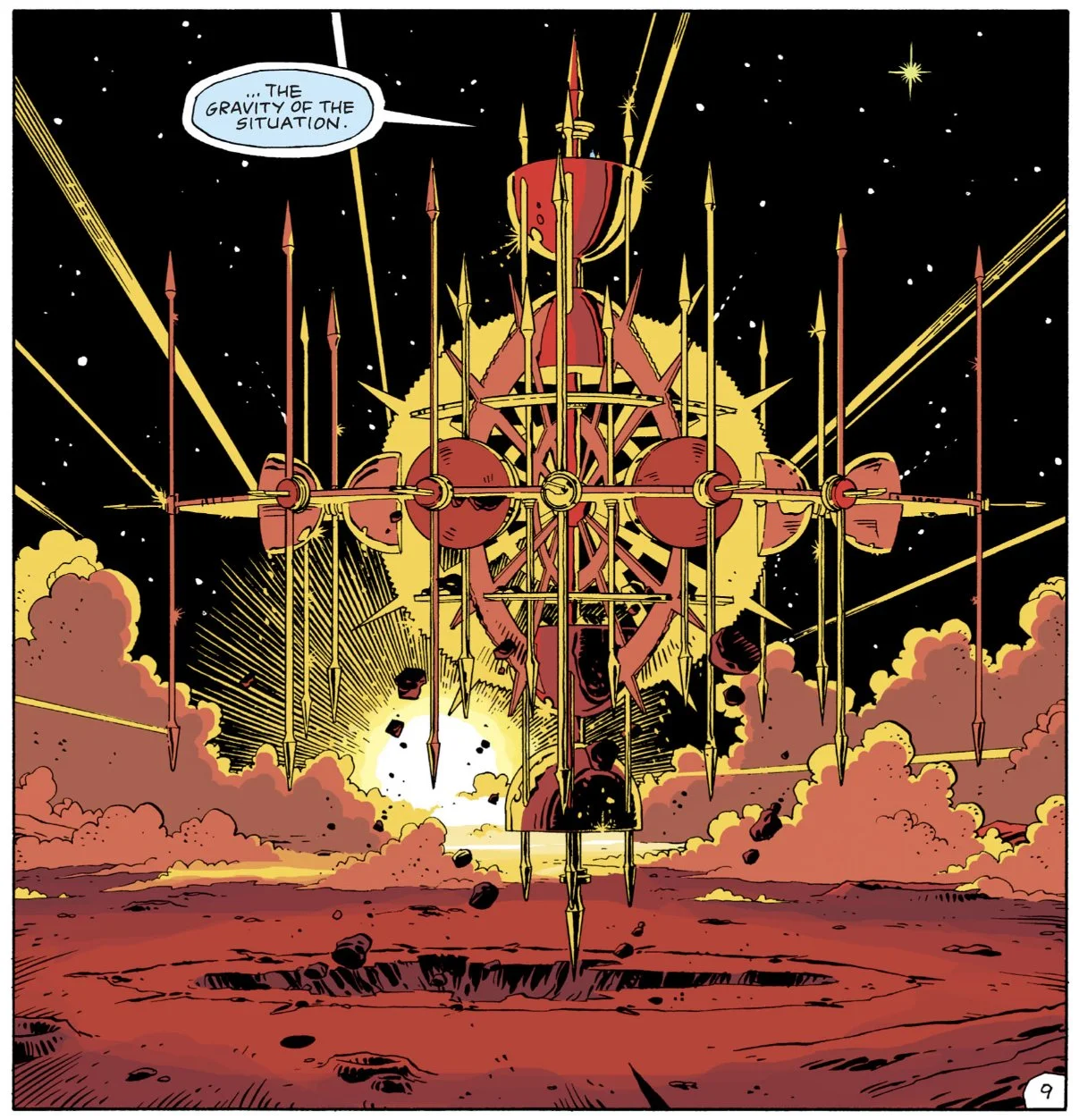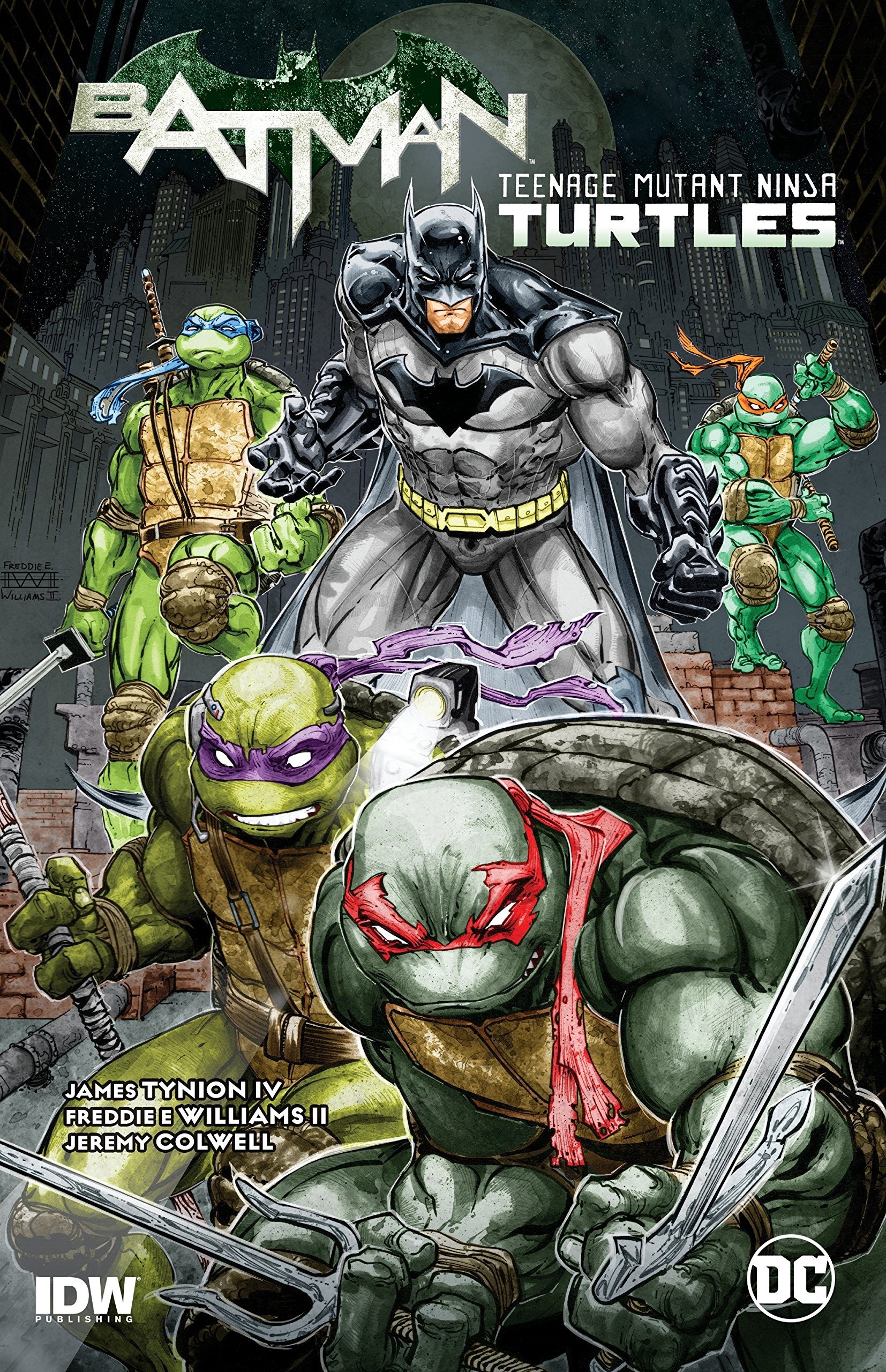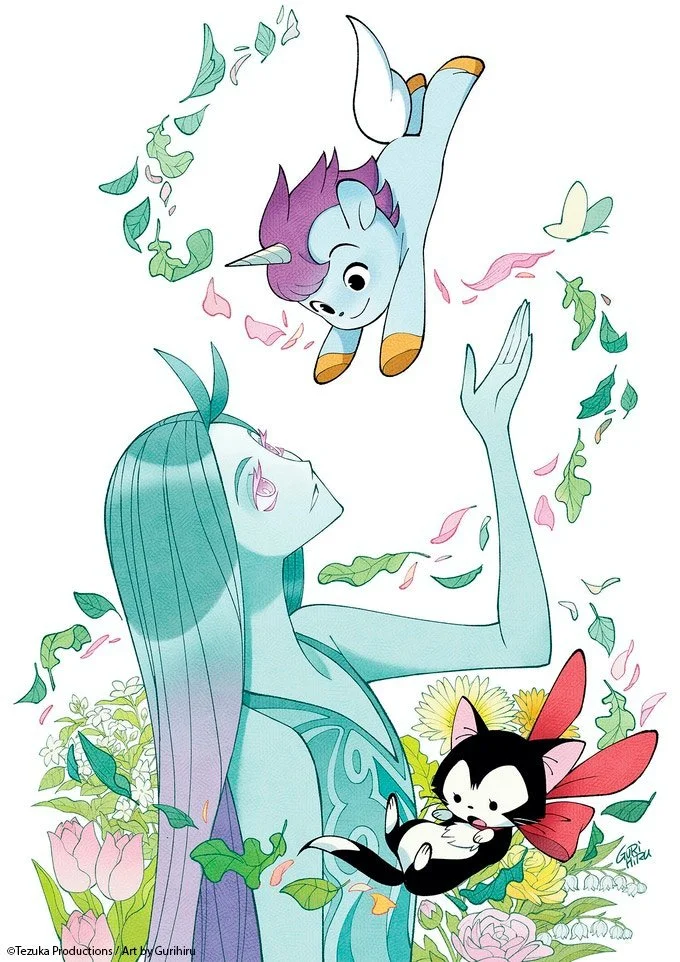Then It's Us: The Queer Cosmic of GUARDIANS OF THE GALAXY (2020)
By Brant Lewis — Al Ewing and collaborators’ Guardians of the Galaxy (2020) series has one of the most overtly queer teams in Marvel Comics history. From Guardians of the Galaxy #1, queerness plays a significant role in the team's makeup. The couple of Phyla-Vell and Moondragon are already members, while Marvel Boy (Noh-Varr) and Hercules join later (more on each of them in a second). The queer representation also increases when Star-Lord (Peter Quill) comes out as queer, Nova reveals he has feelings for Peter, and the duo starts a poly relationship with Gamora (more on that in a second, too). Similarly, the comic intersects with Empyre, an event centered around the marriage of Hulking (Teddy Altman) and Wiccan (Billy Kaplan).
By the end of this run (Guardians of the Galaxy #18), it is clear that it is queer non-judgmental love that has powered this comic, and that’s what I'd like to discuss today, as well as this book’s place within Ewing’s wider body of work, which features many interesting and three-dimensional queer characters.
Queer Representation in Guardians of the Galaxy (2020) - Star-Lord
As noted, when this run starts we already have the couple of Phyla-Vell and Moondragon. But that’s not the only queer representation on the team, not for long, anyway. Marvel Boy (Noh-Varr) has described himself as not straight before the series, and as a character, he presents a very queer aesthetic. Additionally, writers in the past have flirted with queerness with the character of Hercules, but never truly established it in the central universe. This comic, however, confirms it on the page when Hercules and Noh-Varr begin to date. The pair later have to team up with the Guardians for the event Last Annihilation.
On top of all that, Guardians of the Galaxy (2020) also retcons Peter Quill’s origins with the character coming to terms with his queerness. Before Guardians of the Galaxy #9, Peter has glimpses of Master of the Sun or Ragnar, who asks him, "Do you feel the basis for your life is wrong." On the surface level, this comes across as the comic teasing the return of Quill’s original backstory in Marvel Preview #4, but it reads more as Peter broaching the topic of his sexuality, debating if he fully identifies as heterosexual.
Sure, he feels "happy" having a form of traditional domesticity with Gamora, but he's willing to leave it when Rich asks him for help. There's something wrong within himself that Peter cannot explain, and he wants to discover what it is. At the end of Guardians of the Galaxy #2, Star-Lord is confronted by Ragnar again, where he asks the question again about his life, and answers "yes," then willingly destroying a blackhole bomb to stop the resurrected Olympians. After entering the blackhole, Peter lands in the world of Morinus and meets nomadic aliens Aradia and Mors. After centuries of being together, Peter ends up romantically involved with the pair, and the three enter a queer polyamorous relationship where he becomes The Master of the Sun.
The overall framing of this arc parallels the character's acceptance of his queerness in a very organic manner. Also, after returning to his home dimension, the comic does not ignore Quill’s relationship with Aradia and Mors but makes it a part of his character and part of the difficulty of being back. Yet, instead of following the usual tropes about tragic queer characters, it propels him to adapt his relationship with Gamora by acknowledging his love and attraction for Rich.
Queer Representation in Guardians of the Galaxy (2020) - Phyla-Vell and Moondragon
Similarly, Guardians of the Galaxy rectifies the previous deaths of Earth 616's Phyla-Vell and Moondragon. Before the series, the two were in one of the most prominent queer relationships at Marvel until they were killed in Annihilation: Conquest and War of Kings. Because of this, their deaths fall into the bury your gays tropes, even if the decision was unintentional. However, alternate versions of Phyla-Vell and Moondragon from Earth-18897 would be transported to the central universe during Infinity Wars and replace the dead original characters.
While it's great to get the couple back, the problem persists since it becomes more of a Band-Aid, avoiding as it does actually addressing the issue. Guardians of the Galaxy #5 has Moondragon confront the Dragon of the Moon of Earth-616, where they eventually become a combination of both, which causes Phyla-Vell to be distant. Over the next couple of issues, Phyla-Vell emphasizes that she feels that this new Moondragon is a different person than the one she fell in love with. Although the relationship is not fully patched up, the pair take time to address their relationship issues and decide to move forward as a couple. While they may not be the original couple, this run wishes to examine it and provide a long-term solution and material for future stories. The decision also brings to attention the problems of their deaths and to have three-dimensional queer characters for readers to become invested in. Guardians of the Galaxy (2020) does not hand wave the damage away, choosing instead to dive into it.
Queer Representation in Guardians of the Galaxy (2020) - Rich, Peter, and Gamora
The book's central relationship, however, is the aforementioned relationship of Rich, Peter, and Gamora. Rich and Peter first met each other during the Annihilation War and have a very intimate friendship due to the conflict. Similarly, Gamora and Rich had a romantic relationship during the war. The love triangle of Peter, Rich, and Gamora is very Sedgwickian, since it aims to combat the homosocial relationship of the two men by having a woman be the focus. This run counters this traditional narrative by offering another possibility for the trio.
Following Peter's apparent death in Guardians of the Galaxy #2, Rich recounts to his therapist running into Gamora at a bar, and he attempts to apologize for what happened to Peter. Gamora and Rich reflect on their previous relationship over drinks, and the conversation becomes much more gut-crushing as she blames him for Peter's death. Before she leaves, Rich reveals, "...I loved him too. You know that, right?" Gamora, looking away, responds, "Yes. I know. That makes it worse. Goodbye Richard" and leaves.
The queer subtext of Rich's and Peter's relationship becomes text when he finally discloses his true feelings here. Instead of having the romance be about Gamora and Peter or Gamora and Rich, this run makes it about Rich, Peter, and Gamora. Guardians of the Galaxy (2020) also introduces the eventual endgame of the trio with Peter forming a poly relationship while on Morinus. The decision does not need to become an either/or. At the end of the series, the final splash page has all of the characters, including Peter, Rich, and Gamora having their arms around each other.
Queer Representation in Guardians of the Galaxy (2020) - The Ending and the Art
This ending highlights the queer poly relationship that the book has been building towards in the previous 17 issues. Most importantly, Guardians of the Galaxy (2020) presents the relationship without any negative judgment as a happy ending. Although the comic does not state the relationship with words, the art and narrative arc of the characters make it hard to avoid seeing the connection. Peter, Gamora, and Rich are much happier and more open with each other after recognizing their love. Queer non-judgemental love powers this comic.
The art also highlights the queer aspects, such as with the introduction of Hercules. Juann Cabal presents the hero shirtless with a hairy chest and gray spots in his beard while being held in a futuristic bondage contraption. Cabal’s depiction of Hercules does not shy away from the cheesecake aspects of the character. Still, it does not show him as extremely overtly muscular and masculine within the typical cis heterosexual male gaze. There’s a tenderness to him that comes out in the art. Cabal does something similar for Peter’s new costume when he becomes the Master of the Sun. The long beard and hair, the open jacket, necklace, and rings contrast with the more traditional darker and conservative masculine superhero costumes. The new design also serves as a visual signifier for Peter’s acceptance of his queerness and reinforces the queer nature of his cosmic role.
Finally, the different artists who work on the 18 issues in this run have queer characters who openly depict queer love and affection on the page. Instead of hiding it through subtext, the art shows queer intimacy and attraction. More importantly, the art displays a variety of queer intimacy and love instead of just one singular way. They never shy away from the beauty of queer love, strengthening the comic for the better.
Queer Representation in Other Al Ewing-Written Comics
Throughout his work, writer Al Ewing normalizes queer characters and relationships in his stories. Outside of Guardians of the Galaxy, Loki: Agent of Asgard does not shy away from the character's queerness and genderfluidity; Immortal Hulk featured a trans woman character named Doctor Charlene McGowan, and Ewing’s creator-owned comic, We Only Find Them When They Are Dead, has explicitly queer characters, too.
Much like with Guardians of the Galaxy, what makes the queer characters in all of these comics different is that they are three-dimensional characters whose sexuality and gender identity do not solely define them. There's a complexity to them and their relationships that make them feel real. As a queer comic book fan, it becomes tiring for me whenever the media only gives crumbs of representation. The work of Ewing and his collaborators is what I've been craving, and it means a lot when creators are open about themselves.
While in the middle of the Guardians of the Galaxy (2020) run, Ewing himself would come out as bisexual at the end of pride month 2021. After he came out, it inspired me to re-read his previous work and appreciate what he was able to do within it. I do not want to read too much into it, but it becomes clear that Ewing is working with his collaborators to present a world where queer and trans people can live their lives as they want to without fear. After all, who doesn't want to see themselves positively represented in the media they consume?
And while Al Ewing may not be the only creative doing this, Guardians of the Galaxy (2020) meant a lot to me, and my love for it grows each time I reread it. "Then it's us," Peter says as his chosen family surrounds him at the series end. "Then it's us."
Order Guardians of the Galaxy (2020) Vol. 1!
Read more from the Comics Bookcase Features section!
Brant Lewis is a horror filmmaker and writer who has a strong passion for ghosts, vampires, the gothic, and comics. Outside of horror, they love the X-Men and cannot decide between Lorna Dane and Emma Frost as their favorite character. You can keep up with them by following them on Twitter @Brant__Lewis or their blog "The Blog in the Woods.”












